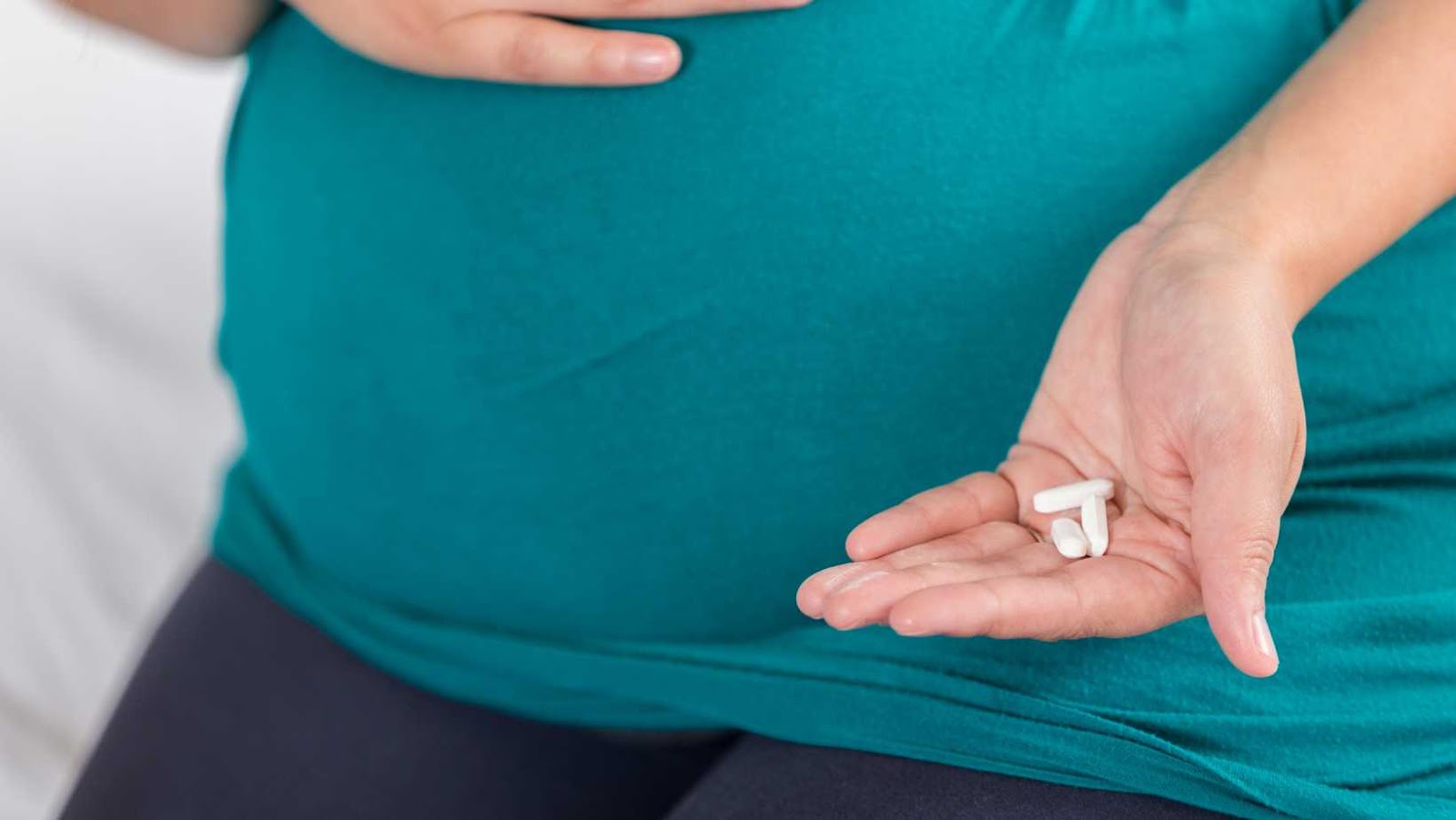Are you pregnant and looking for natural alternatives to taking prenatal vitamins? Have the side effects of prenatal vitamins taken a toll on your health? You have come to the right place as we have compiled a list of safe and effective alternatives so you can make an informed decision.
Introduction
Prenatal vitamins are an essential part of any healthy pregnancy. However, some women may experience side effects from taking these supplements, such as nausea, vomiting, and constipation. If you’re looking for a natural alternative to taking prenatal vitamins, there are many options available that can provide you with the necessary nutrients to support a healthy pregnancy. From consuming a well-balanced diet to taking specific supplements, there are many approaches you can take to ensure you and your baby receive the necessary nutrients without compromising your health and well-being.
However, it’s important to discuss any alternative options with your doctor or midwife to ensure you’re getting everything you need to support a healthy pregnancy.
Benefits of Taking Prenatal Vitamins
Prenatal vitamins are a vital tool to support a healthy pregnancy, providing essential nutrients for both the mother and the developing baby. Some benefits of taking prenatal vitamins include:
| 1. Folic Acid: | Prenatal vitamins provide folic acid to reduce the risk of birth defects in the spinal cord and brain. |
| 2. Iron: | Pregnant women require extra iron to support the growth of the baby and prevent anemia. |
| 3. Calcium: | Prenatal vitamins contain calcium to support the development of bones in both the mother and the baby. |
While there are no natural alternatives to prenatal vitamins that can provide the same level of nutrients, eating a balanced and healthy diet can supplement some essential vitamins and minerals. However, it’s crucial to speak with a doctor before making any changes to vitamin intake during pregnancy.
As for the side effects, some women may experience nausea or constipation from prenatal vitamins. To prevent these uncomfortable symptoms, it’s recommended to take prenatal vitamins with food or before bedtime.
Can Prenatal Vitamins Make You Sick
While prenatal vitamins are generally considered safe for expecting mothers, some potential side effects may occur. The most common side effect of prenatal vitamins is constipation, nausea, and vomiting. In some cases, high doses of certain vitamins and minerals in prenatal vitamins may increase the risk of birth defects, particularly if taken in the first trimester. Therefore, it is essential to consult with a healthcare provider before starting any prenatal supplements. If you are looking for natural alternatives to prenatal vitamins, you can get the necessary nutrients from a well-balanced diet consisting of fresh fruits and vegetables, whole grains, lean proteins, and healthy fats. Foods like spinach, beans, citrus fruits, nuts, and seeds contain important vitamins and minerals that aid fetal development. Additionally, you can also consult with a registered dietician to create a balanced and personalized meal plan.
Natural Alternatives to Prenatal Vitamins
Yes, there are natural alternatives to prenatal vitamins that are equally healthy for expectant mothers and their babies. Some options include:
| 1. Whole foods: | Eating a nutrient-dense diet with plenty of fresh fruits, vegetables, lean proteins, and healthy fats can provide all the necessary vitamins and minerals naturally. |
| 2. Supplements: | Certain herbal supplements like ginger, chamomile tea, or peppermint can help alleviate nausea and digestive problems that prenatal vitamins may cause. |
| 3. Prenatal vitamin alternatives: | Instead of taking synthetic supplements, opt for whole food-based prenatal vitamins that contain foods like fruits, vegetables, and herbs. |
| 4. Lifestyle changes: | Getting plenty of sleep, reducing stress with relaxation techniques, and light exercise can also optimize nutrient absorption and support a healthy pregnancy. |
Remember that every pregnancy is unique and it’s important to talk to your healthcare provider before making any changes to your prenatal vitamin regimen. Pro Tip: A nutrient-dense diet rich in whole foods is the best way to support healthy fetal development and maternal well-being.

Foods to Eat During Pregnancy
Prenatal vitamins are necessary to ensure that both the mother and developing fetus have all the nutrients they require to stay healthy. However, some women may experience nausea, vomiting, or other unpleasant side effects when taking prenatal vitamins. While there are no natural alternatives to replace these vitamins, there are certain healthy foods that pregnant women can consume to gain similar nutrients.
| Leafy greens, including spinach and kale, | Iron, calcium, and vitamins A, C and K. |
| Fatty fish | Omega-3 fatty acids, vitamin D and other essential nutrients. |
| Lean meats and poultry | Iron, protein, B-vitamins – such as B6 and B12 – and zinc. |
| Eggs | Protein and choline. |
| Fruits like citrus and berries | Vitamin C and antioxidants. |
While a balanced diet provides many of the nutrients needed for pregnancy, prenatal vitamins may be recommended in certain cases, especially for women with certain nutrient deficiencies or medical conditions.
Pro tip: Consult with your healthcare professional before making any major changes to your diet.

Supplements to Take During Pregnancy
While prenatal vitamins are essential for a healthy pregnancy, some women may experience side effects such as nausea, constipation, or allergic reactions. However, there are many natural alternatives to help supplement the nutrients found in prenatal vitamins. These alternatives include:
| 1. Folic Acid: | It is for the development of the baby’s neural tube and lowers the risk of birth defects. Foods rich in folic acid include spinach, avocados, asparagus, and lentils. |
| 2. Iron: | It is essential for producing red blood cells that carry oxygen to the baby. Foods rich in iron include beef, poultry, fish, beans, and fortified cereals. |
| 3. Calcium: | It is critical for the development of the baby’s bones and teeth. Foods rich in calcium include milk, cheese, yogurt, broccoli, and kale. |
| 4. Vitamin D: | It is essential for the baby’s bone development and improves the immune system. Foods rich in vitamin D include fortified milk, egg yolks, and fatty fish like salmon and tuna. |
| 5. Omega-3 fatty acids: | It is essential for the baby’s brain and eye development. Foods rich in omega-3 fatty acids include fatty fish, chia seeds, flax seeds, and walnuts. |
While natural sources are great, it is essential to consult with a healthcare professional before switching from prenatal vitamins. They can help you understand your nutrient requirements and suggest the right alternatives to meet them.
Pro tip: Instead of taking a pill, try incorporating these natural sources of nutrients into your diet for a healthy pregnancy.
Herbal Remedies For Pregnancy
Prenatal vitamins are essential for providing the necessary nutrients and vitamins during pregnancy. However, some women may experience nausea or other side effects from taking them. Fortunately, there are natural herbal remedies that can supplement or replace some of the nutrients found in prenatal vitamins.
Here are three herbal remedies that can be beneficial during pregnancy:
| 1. Folate-rich foods: | Foods like leafy green vegetables, oranges, and beans are naturally high in folate and can provide an alternative to taking synthetic folic acid in prenatal vitamins. |
| 2. Ginger: | Ginger has been shown to help reduce nausea and vomiting during pregnancy. Drinking ginger tea or taking ginger supplements can be a natural solution for managing morning sickness. |
| 3. Red raspberry leaf: | This herb is high in vitamins C, E, and A, and can help strengthen the uterine muscles and ease labor pains. |
While natural remedies can be a great help, it’s still important to consult with a doctor or nutritionist to ensure you are getting the nutrients you and your baby need.
Conclusion
In conclusion, while prenatal vitamins are essential for maintaining healthy pregnancies, there are natural alternatives to taking them if they make you sick.
Some natural alternatives to consider include eating a well-rounded diet rich in fruits, vegetables, whole grains, and lean proteins. This method ensures you’re getting all of the essential vitamins and minerals that you and your growing baby need. Additionally, taking specific supplements like folic acid and iron can help supplement your nutrient intake if needed.
Before making any changes to your prenatal care routine, consult your healthcare provider to ensure you’re doing what’s best for you and your baby. They can also help you identify any vitamin deficiencies you may have and provide guidance on how to address them. Pro tip: Remember, every pregnancy is unique, so what works for one mom-to-be may not work for another.
